ANK2
Recent articles
Top autism-linked genes join forces to shape synaptic plasticity
The protein products of ANK2 and SCN2A interact to regulate dendritic excitability.
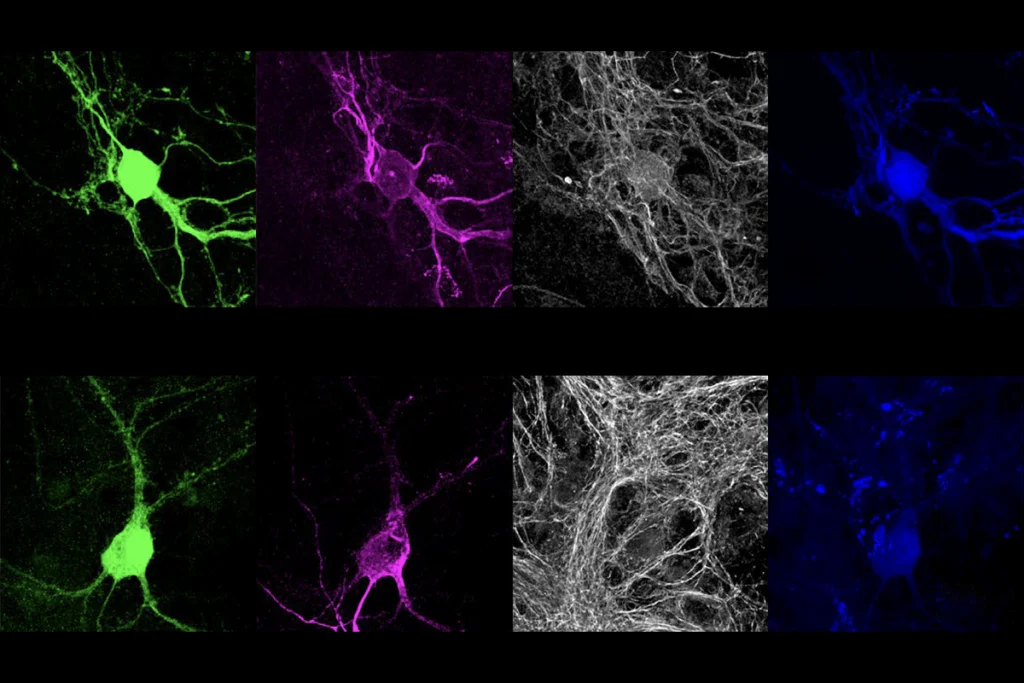
Top autism-linked genes join forces to shape synaptic plasticity
The protein products of ANK2 and SCN2A interact to regulate dendritic excitability.
Fishing for protein partners nets clues to autism
Connections between 13 autism-linked proteins and their binding partners in excitatory neurons implicate a new molecular pathway.
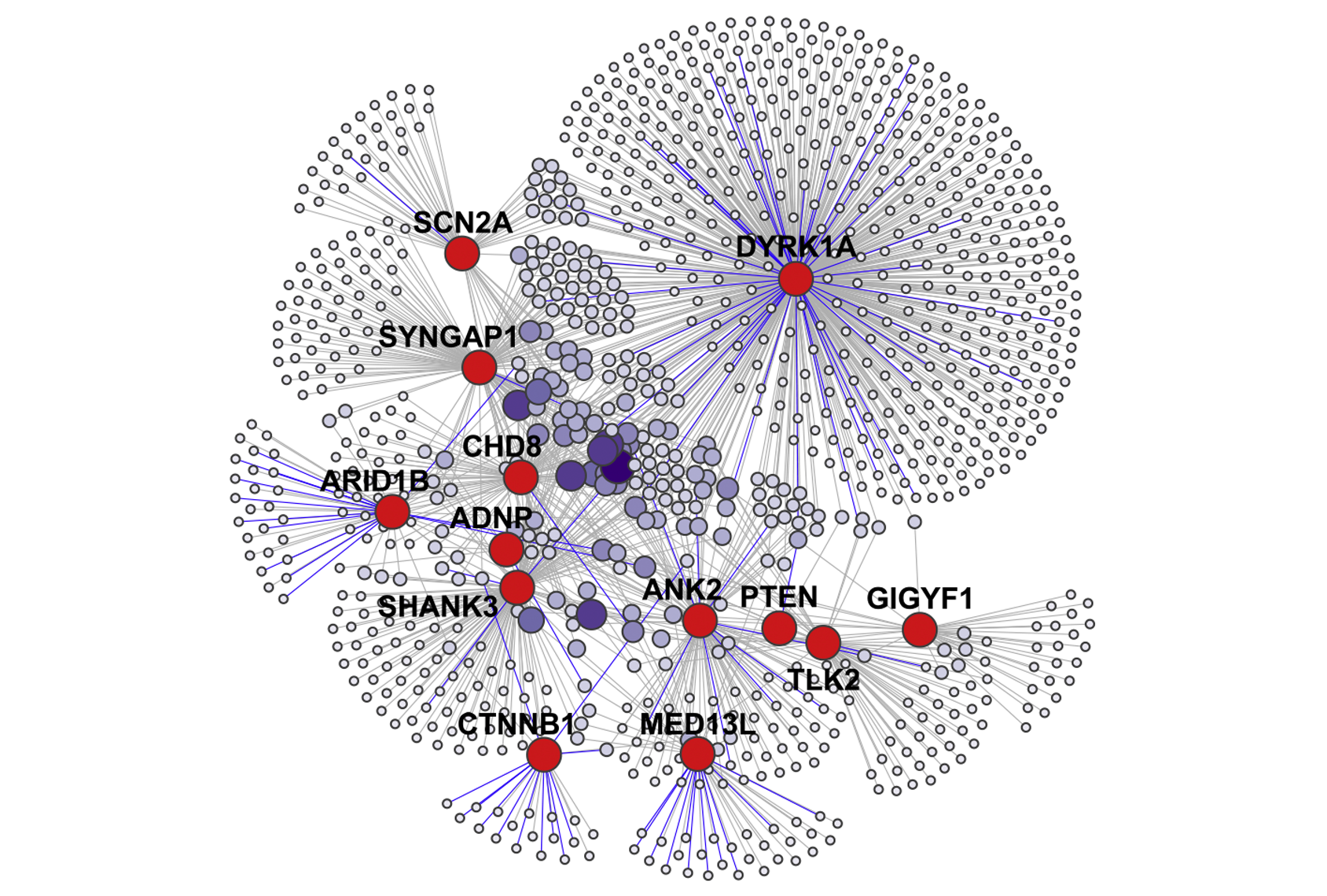
Fishing for protein partners nets clues to autism
Connections between 13 autism-linked proteins and their binding partners in excitatory neurons implicate a new molecular pathway.
Dispatches from SfN 2021: Mitochondria, Rett therapy and oxytocin
These short reports from Spectrum journalists highlight some of the autism-related findings that caught our attention at the meeting this past week.
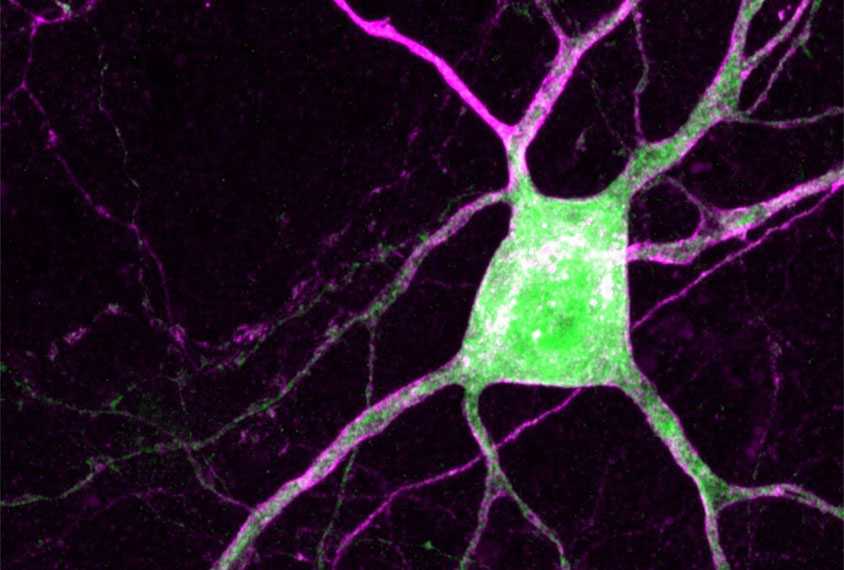
Dispatches from SfN 2021: Mitochondria, Rett therapy and oxytocin
These short reports from Spectrum journalists highlight some of the autism-related findings that caught our attention at the meeting this past week.
‘Neurons on a chip’ reveal patterns across autism-linked conditions
Activity patterns of neuronal networks link different genetic subtypes of autism that have similar traits, according to new unpublished research.
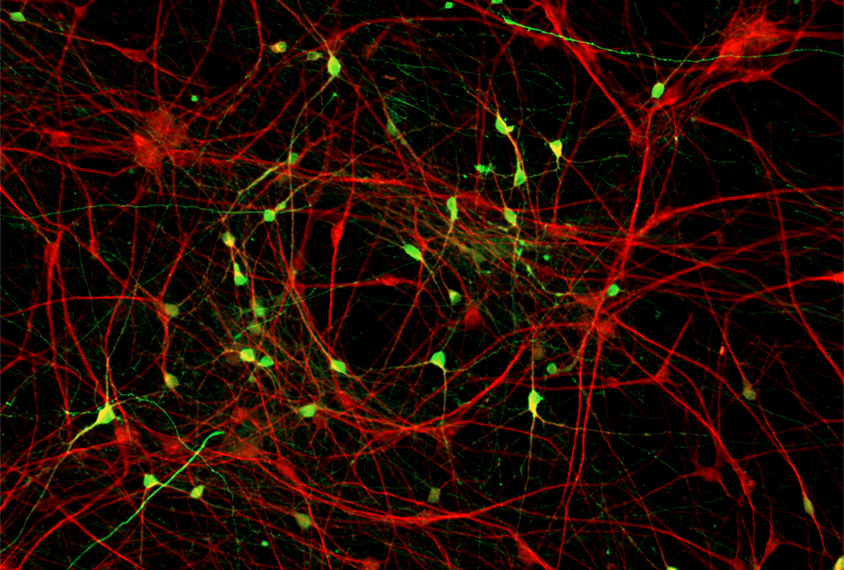
‘Neurons on a chip’ reveal patterns across autism-linked conditions
Activity patterns of neuronal networks link different genetic subtypes of autism that have similar traits, according to new unpublished research.
Mutations in frogs point to autism genes’ shared role in neurogenesis
Mutations in any of 10 autism-linked genes in frogs lead to the same overabundance of brain cells that develop into neurons; the sex hormone estrogen lowers this excess.
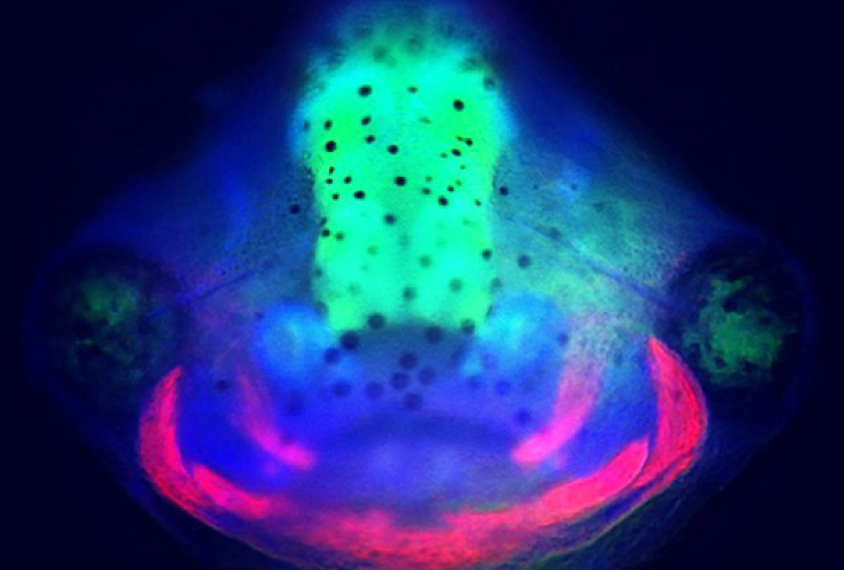
Mutations in frogs point to autism genes’ shared role in neurogenesis
Mutations in any of 10 autism-linked genes in frogs lead to the same overabundance of brain cells that develop into neurons; the sex hormone estrogen lowers this excess.
Cell maps reveal diversity of neurons in gut
An atlas that details gene expression in neurons and other cells from the intestines of mice and people may help to elucidate the link between gut problems and autism.
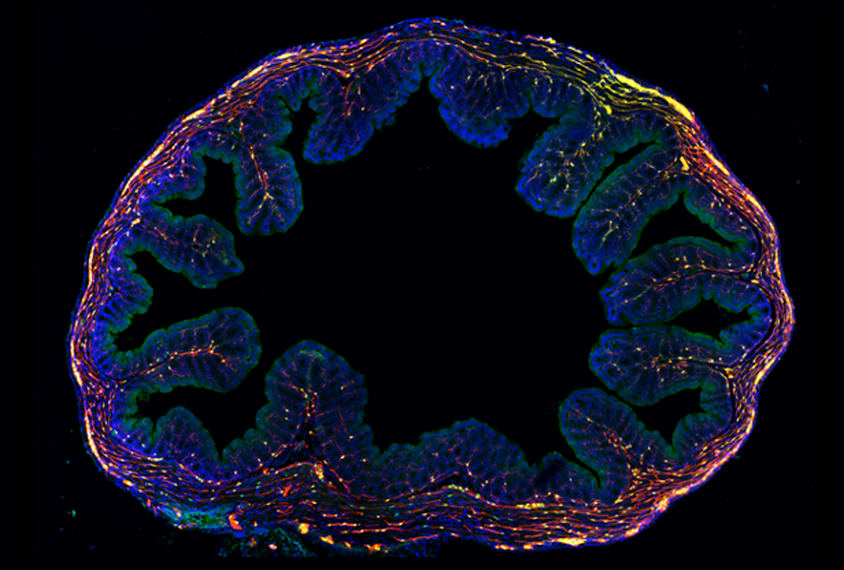
Cell maps reveal diversity of neurons in gut
An atlas that details gene expression in neurons and other cells from the intestines of mice and people may help to elucidate the link between gut problems and autism.
Mice reveal how top autism gene may disrupt brain structure
Mutations in an autism gene called ANK2 may alter brain wiring by causing the growth of excess neuronal connections.
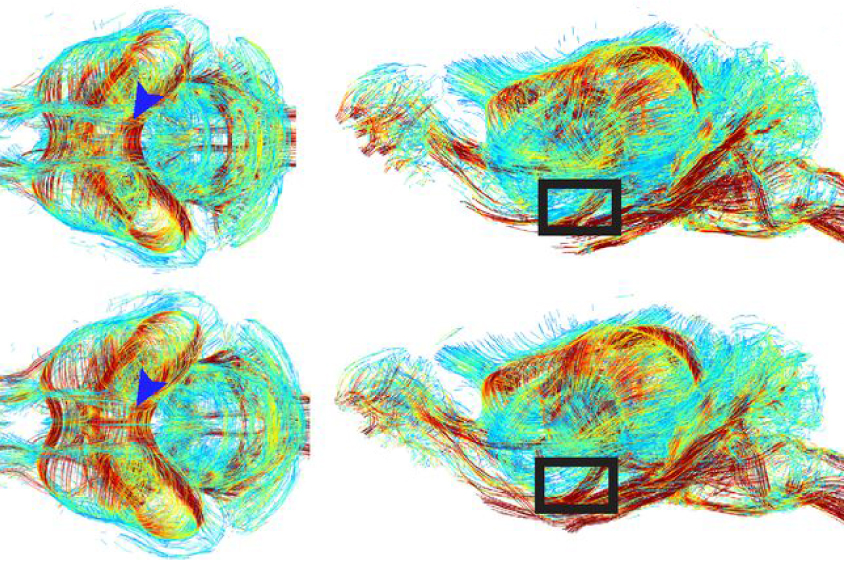
Mice reveal how top autism gene may disrupt brain structure
Mutations in an autism gene called ANK2 may alter brain wiring by causing the growth of excess neuronal connections.
Some ‘autism genes’ show stronger ties to related conditions
The largest autism sequencing study to date implicates 99 genes in the condition — but nearly half have a tighter link to intellectual disability or developmental delay.
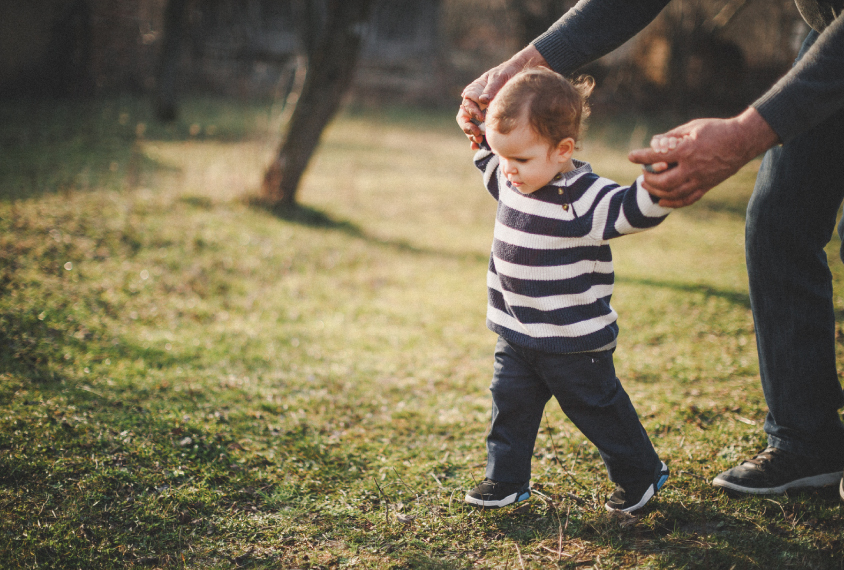
Some ‘autism genes’ show stronger ties to related conditions
The largest autism sequencing study to date implicates 99 genes in the condition — but nearly half have a tighter link to intellectual disability or developmental delay.
‘Retired’ mice find new life as top models for autism
As the list of autism candidate genes grows, some mouse models of the genes turn up in long-forgotten studies.
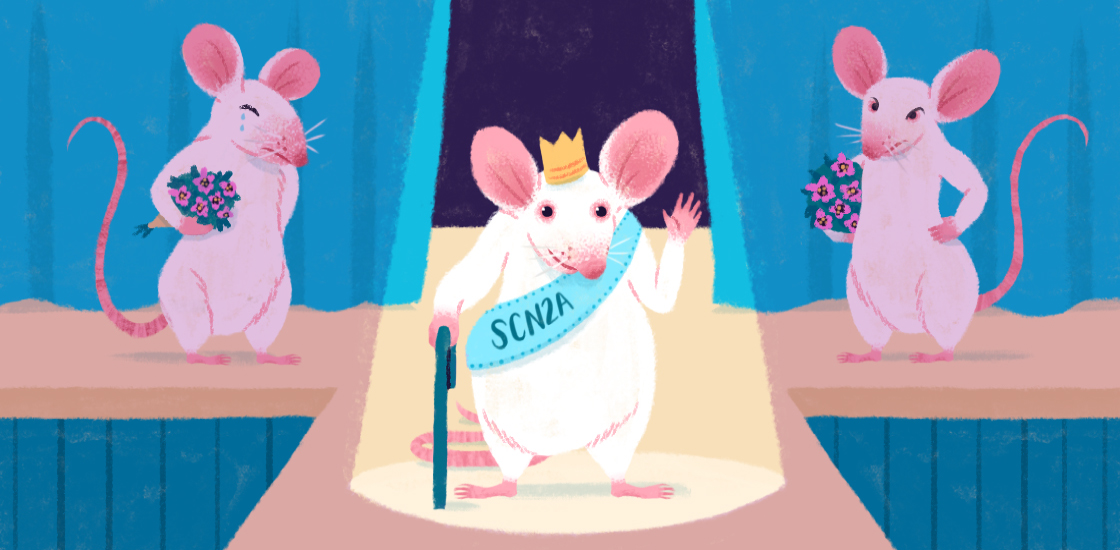
‘Retired’ mice find new life as top models for autism
As the list of autism candidate genes grows, some mouse models of the genes turn up in long-forgotten studies.
Brain’s bridge could yield clues to faulty wiring in autism
Decoding distortions in the brain’s largest nerve tract could lay bare basic problems with long-range neural connections in autism.
Brain’s bridge could yield clues to faulty wiring in autism
Decoding distortions in the brain’s largest nerve tract could lay bare basic problems with long-range neural connections in autism.
Explore more from The Transmitter
Mitochondrial ‘landscape’ shifts across human brain
Evolutionarily newer regions sport mitochondria with a higher capacity for energy production than older regions, according to the first detailed map of the organelles in a tissue slice, adding to mounting evidence that the brain features a metabolic gradient.

Mitochondrial ‘landscape’ shifts across human brain
Evolutionarily newer regions sport mitochondria with a higher capacity for energy production than older regions, according to the first detailed map of the organelles in a tissue slice, adding to mounting evidence that the brain features a metabolic gradient.
Expediting clinical trials for profound autism: Q&A with Matthew State
Aligning Research to Impact Autism, a new initiative funded by the Sergey Brin Family Foundation, wants to bring basic science discoveries to the clinic faster.

Expediting clinical trials for profound autism: Q&A with Matthew State
Aligning Research to Impact Autism, a new initiative funded by the Sergey Brin Family Foundation, wants to bring basic science discoveries to the clinic faster.
This paper changed my life: Shane Liddelow on two papers that upended astrocyte research
A game-changing cell culture method developed in Ben Barres’ lab completely transformed the way we study astrocytes and helped me build a career studying their reactive substates.

This paper changed my life: Shane Liddelow on two papers that upended astrocyte research
A game-changing cell culture method developed in Ben Barres’ lab completely transformed the way we study astrocytes and helped me build a career studying their reactive substates.